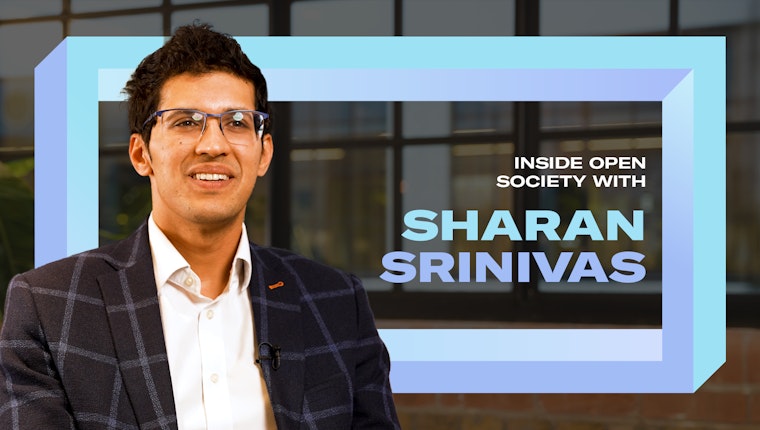Strengthening Protection for Rights Defenders
By Sharan Srinivas

What do we mean when we talk about protecting rights defenders? Today, the term is broad in scope—it embraces anyone who advocates for any of the whole range of human rights that shape how we live. It includes those speaking out against extrajudicial killings by the police and drug gangs in Mexico, or the persecution of LGBTQI people in Uganda; those who organize workers in factories in southeast Asia to form a union, or villagers in Central America who demand fair compensation from a mining company for the pollution of their drinking water.
Taking this kind of action can be hugely dangerous, even fatal.
In 2023, we saw at least 300 killings of rights defenders in 28 countries around the world. Almost 3,000 defenders have been murdered in the last decade, with those who speak out against environmental destruction, or in support of women’s human rights increasingly bearing the brunt. These attacks frequently happen in remote areas, in mountains or forests or river deltas, where perpetrators can operate away from the gaze of the wider community.

Human rights groups, both local and global, have been struggling to find new ways to protect those at risk from this violence. Conventional tactics have been largely reactive—such as relocating the defender to Europe or North America or highlighting individual cases in the media or with foreign embassies in the hope of deterring violence. These tactics are less effective when a defender is a community leader living far from the urban areas where most established rights groups are based.
There is an increased recognition of the need for a more holistic approach—one that includes engaging the support of the local communities where individual rights defenders work. Rather than relying on support from distant cities, strong social cohesion at the local level makes it harder for violence to be unleashed on individuals who speak up.
As a long-time funder of human rights, the Open Society Foundations will be continuing to fund leading rights groups at a global, regional, and national level. But, under our new operating model, we are also launching a new, more focused Protecting Rights Defenders program.
This new program work will embrace this more holistic approach, by seeking to forge lasting and effective protection systems for local and regional rights defenders. The objective will be to cement their position as key stakeholders in economic and social development of their communities, and their countries, and to raise the political costs for those that seek to harm them.
Our primary goal is to significantly reduce attacks against rights defenders by building sustainable protection coalitions at country level. With our expertise in strategic litigation, advocacy, communications, and our experience in resourcing community organizing, we will lend our support to grassroots organizations, but also, when feasible and politically appropriate, engage government agencies who as duty bearers bear primary responsibility for protecting those who defend rights. Similarly, we will support advocacy groups to hold mining industry bodies and multilateral lenders to account and to establish rights defenders protection safeguards.
Some of the ideas we will be helping to fund include:
- Strengthening the 2018 Escazu Agreement on environmental protections (which commits 24 Latin American and Caribbean governments to protect rights defenders), with steps such as providing legal aid for defenders, and training judges and prosecutors to punish perpetrators
- Working in Asia with partners to provide digital security support to young women human rights defenders in the region facing targeted digital surveillance, while supporting legal defense networks for activists who face criminalization and legal action from private companies and government agencies aimed at silencing them
We will seek to buttress the infrastructure of support available to beleaguered defenders in Africa, Asia and Latin America, including those who are forced out of their communities by threats of violence.
Our new work is ambitious, but the challenges are significant. Conviction rates for killing defenders are unacceptably low, while it is inexpensive to terrorize a community into silence. So-called “foreign agent” laws restricting foreign funding are also on the rise as those with money and power seek to isolate and eradicate critical voices. Regrettably, more of the largest bilateral government donors are increasingly tying their foreign aid policies to trade interests, not the safety of rights defenders.
We trust that other funders will also embrace this broader approach. Those on the frontlines of struggles for democracy, equity, and justice should not be left alone.

Sharan Srinivas is a director of Programs at the Open Society Foundations.


